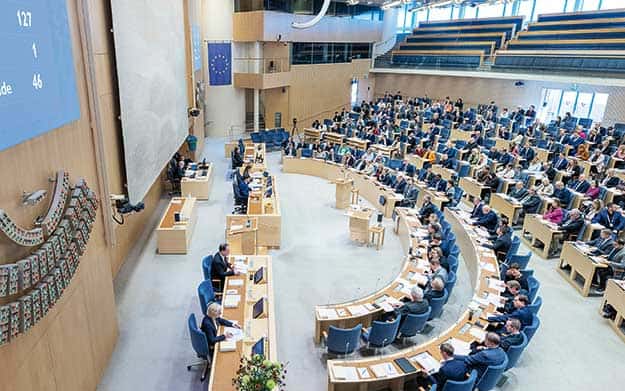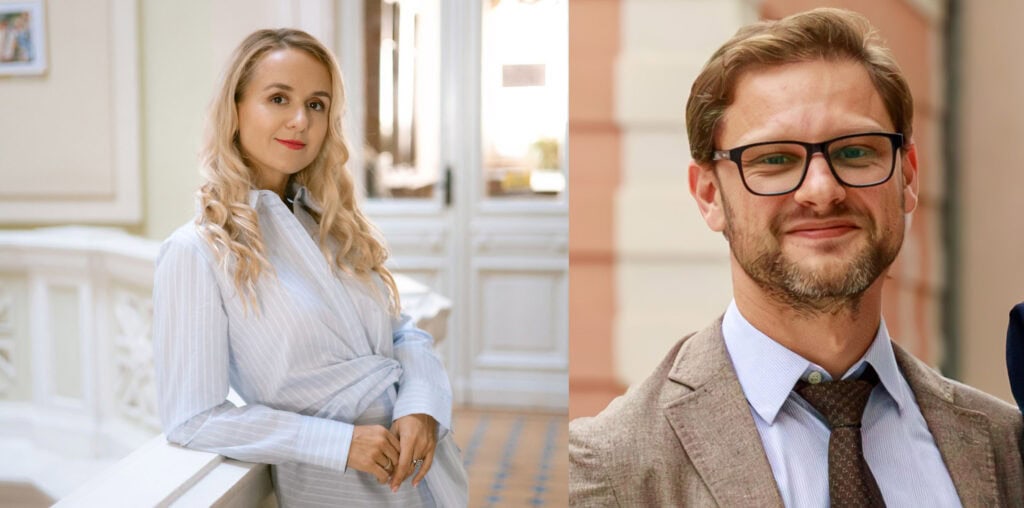The government’s research bill includes a proposed commission of inquiry to review whether higher education institutions should be state authorities. The Social Democrats do not believe the inquiry is needed, as they wrote in a parliamentary motion that passed with the support of the Sweden Democrats.
Linus Sköld, the Social Democrats’ spokesperson on higher education issues, explains that the party is primarily opposed to universities and colleges being run as foundations.
“The bill contains a very vague description of what this commission of inquiry would entail. But my understanding is that what the government has communicated after the bill is definitely that this is the form (foundation, ed.) that they have in mind,” he says.

Linus Sköld
Social Democrats’ spokesperson on HE issues
For the Social Democrats, the issue is about how higher education and research should fundamentally operate, he continues.
“Today, the higher education sector is part of Sweden’s welfare system. In other words, it is a public good for which the public sector is responsible. That is how we Social Democrats want it to be. And few other parties have expressed a desire to make universities dependent on philanthropists and tuition fees, for example. As I see it, that would be required if a freer form of organisation were to be able to protect universities from meddlesome political control.”
The Sweden Democrats see no reason to change the organisational form of higher education institutions, says Patrick Reslow, education policy spokesperson for the Sweden Democrats.
“We think it is good that higher education is run by the state, and we want to keep it that way. There are also many benefits to it being subject to the Administrative Procedure Act.”

Patrick Reslow
Education policy spokesperson, Sweden Democrats
As an example, he explains that people can appeal against appointments if applicants consider that they have not been made on meritocratic principles.
“We think it is important that this possibility exists to remove arbitrariness in appointments procedures. There are also issues such as student rights and student influence, where the Administrative Procedure Act also provides opportunities for influence in a way that is not possible in private enterprises,” says Reslow.
Shirin Ahlbäck Öberg, a professor of political science and deputy director of the Centre for Higher Education and Research as Objects of Study (HERO) at Uppsala University, sees the lack of consensus in the parliament on this issue as a problem.
“The inquiry’s report on the organisational form will end up at the Standing Committee on Education, where the majority is opposed to any kind of proposal that involves change. So the prospects for any adjustments are pretty poor,” she says.
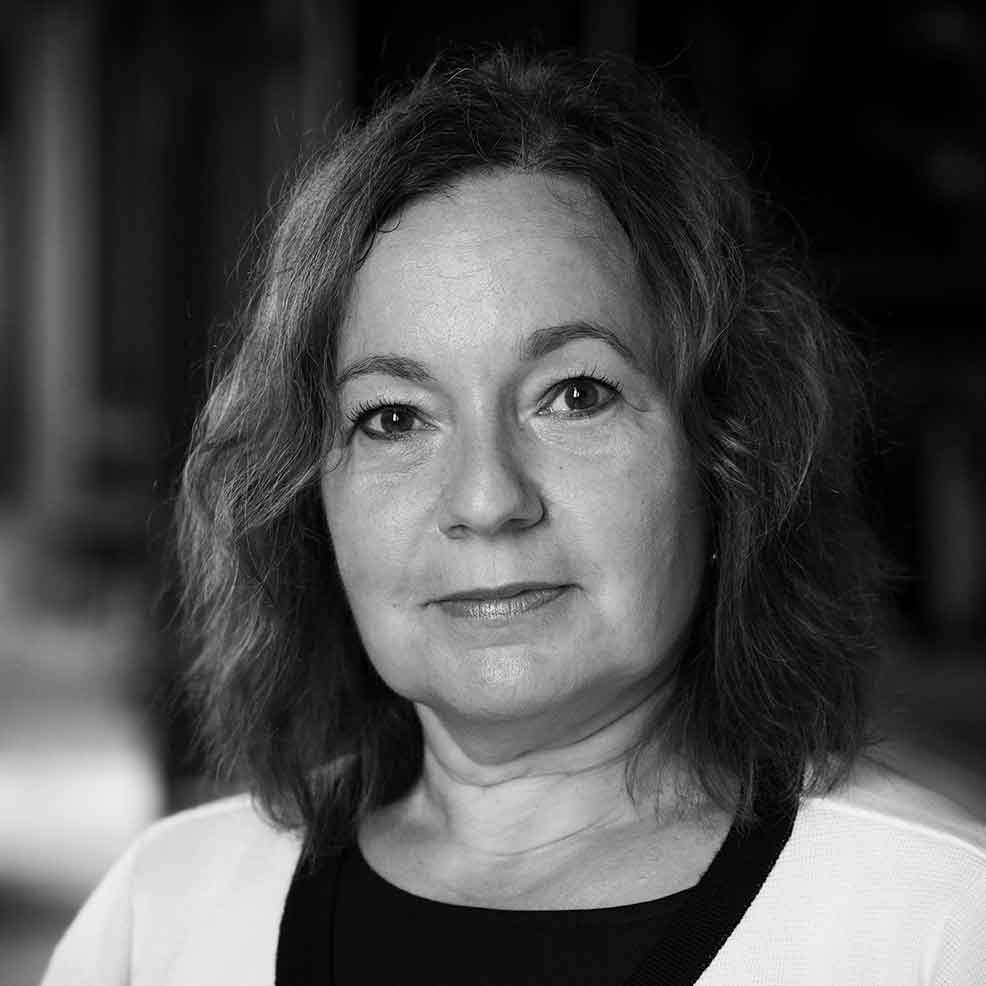
Shirin Ahlbäck Öberg
Professor of political science, Uppsala University
The fact that the Social Democratic Party’s motion was passed with the support of the Sweden Democrats is in itself a sign that the current organisational form is problematic, according to Ahlbäck Öberg.
“The Social Democrats argue that the state is the best guarantor of academic freedom. Meanwhile, the Sweden Democrats unabashedly state that they want to be able to exercise political control over the universities in order to steer them clear of woke politics and so on. So within the framework of the same organisational form, it is possible to build arguments on two completely opposite principles. This alone shows clearly that an inquiry into the organisational form would be extremely consequential.”
“Within the framework of the same organisational form, it is possible to build arguments on two completely opposite principles. This alone shows clearly that an inquiry into the organisational form would be extremely consequential.”
shirin ahlbäck öberg
However, it is not correct to say that the Sweden Democrats want to increase the scope for political control of higher education institutions, says Patrick Reslow. Rather, they want to see greater control over how taxpayers’ money is spent.
“Today, this is governed by political control in appropriation documents and political directives that undoubtedly come from the politically appointed members of the university boards,” he explains. “We need to get rid of all that. If you think that is political control, then so be it, but we do not see it that way; rather, we see it as a need to ensure that taxpayers’ money is used in the right way. But we must also ensure that it is the universities themselves who decide what research should be conducted.”
The government can appoint committees of inquiry on its own initiative. Despite the Social Democrats’ parliamentary motion, work on setting the terms of reference for the inquiry is now in progress, Lotta Edholm, the Minister for Higher Education and Research, tells us by email.
“The committee will be appointed. The government and I see a great need to reinforce academic freedom, and an important task of the upcoming inquiry will be to assess how we can strengthen the independence of higher education institutions and improve their conditions for conducting high-quality education and research.”
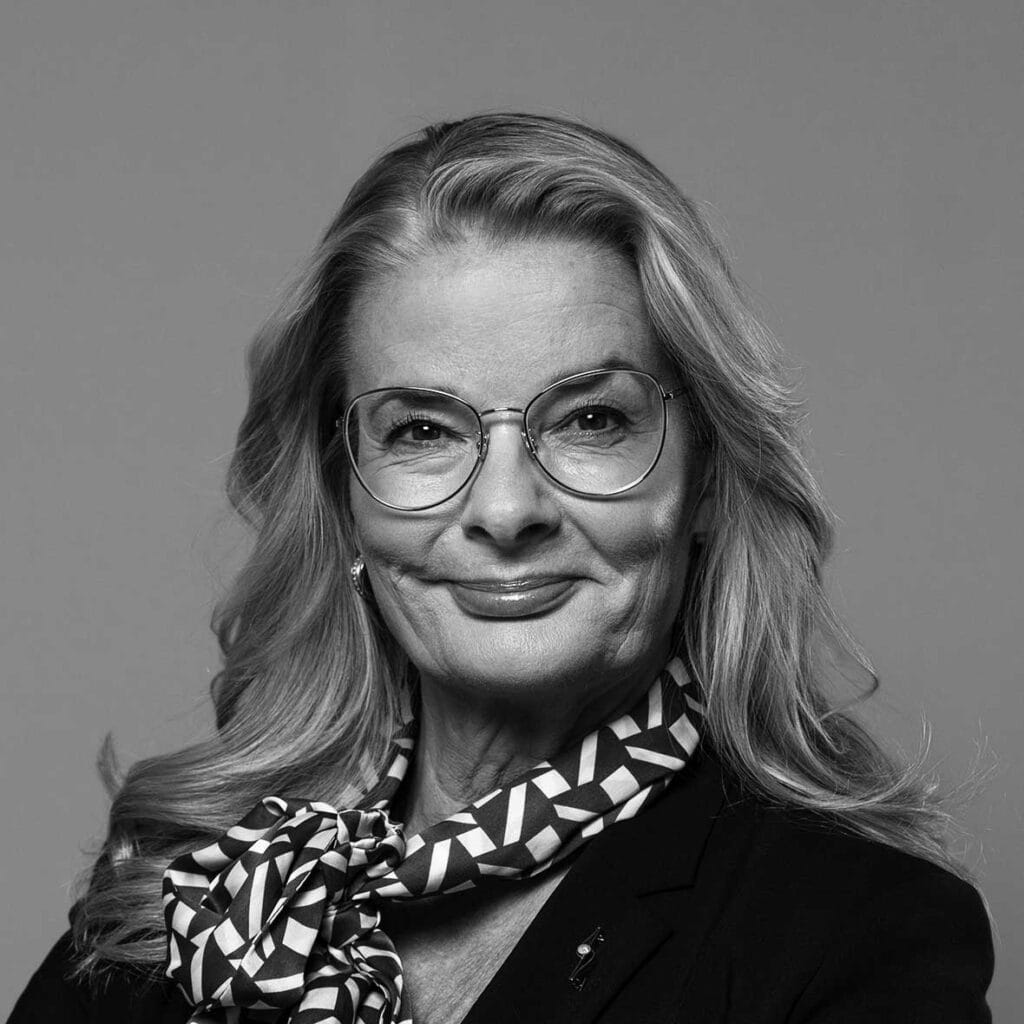
Lotta Edholm
Minister for Higher Education and Research
Shirin Ahlbäck Öberg hopes that the inquiry will deal with more than just whether it is preferable for higher education institutions to be foundations or state authorities.
”I wish people would stop confusing ownership and organisational form,” she says. “When it comes to this issue, the Swedish political debate is far too, shall we say, trivial at the moment. The Social Democrats are talking about universities and colleges being state-owned, that the state should own them. That is a valid standpoint, but it does not automatically mean that they must be state authorities.”
In order to protect higher education institutions from political control, we should also look at whether there is another, more suitable type of organisational form than a state administrative authority, Ahlbäck Öberg continues.
“We need to give the matter careful consideration. But in Sweden, when people talk about these issues, they seem to believe that there are only two organisational forms: a state authority or a foundation. I believe this is wrong.”
“In Sweden, when people talk about these issues, they seem to believe that there are only two organisational forms: a state authority or a foundation. I believe this is wrong.”
Shirin AHLBÄCK ÖBERG
She herself is in favour of higher education institutions being governed by public law, but she believes that a state authority is not the appropriate organisational form.
“One could imagine a public law solution where the separation from politics, but also from the market and other ideological organisations, is wider for universities and colleges than is the case today.”
The Association of Swedish Higher Education Institutions (SUHF) has an expert group tasked with looking into the organisational form of higher education institutions. There are probably differing opinions within the association about which form would be best, believes Hans Adolfsson, the chair of SUHF.
”I am quite sure that it we will not necessarily conclude that all higher education institutions should be cast in the same mould, as is the case today,” he says. “We have 31 higher education institutions that are state authorities and a number that are foundations, limited companies or organised in other ways. There is a range of different organisational forms, and I believe that this is something that would benefit Sweden.”
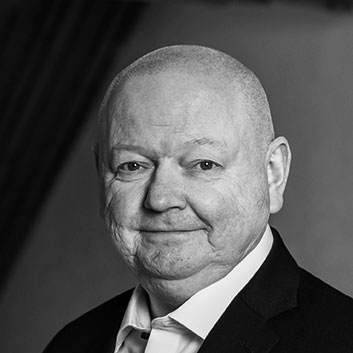
Hans Adolfsson
Chair of SUHF
Adolfsson hopes that the government’s commission of inquiry will be given open directives. ”Sufficiently open that it can look at everything from today’s state authority form to foundations or some other form, such as another organisational form governed by public law. There are a number of examples that could be used as a basis.”
He mentions how Swedish courts and public service broadcasting are organised, and that we could compare with, for example, Finland and Denmark, where higher education institutions are organised in other ways. Personally, he would prefer something other than the state authority form, he says.
“The current structure is based on the assumption that the state is benevolent. That the state understands the importance of safeguarding academic freedom and the institutional autonomy of higher education institutions. But what happens when the state is no longer benevolent, as we are seeing clearly in the United States right now and have also seen in Europe in the past?”
Commission of inquiry as part of the research bill
Today, around thirty universities and colleges are currently state administrative authorities.
In view of a recurring debate about the ”form of association” of higher education institutions, in the government’s research bill for the period 2025-2028, the government wants to appoint a commission of inquiry to look at whether state sector higher education institutions should continue to be organised as authorities.
